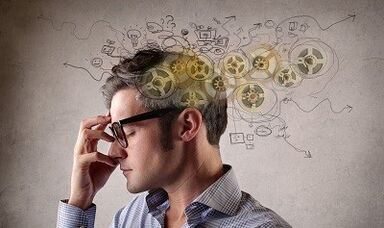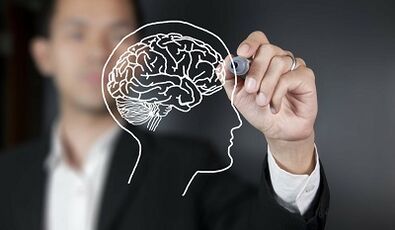
This article contains 15 means to improve memory, which are available at home. These means in everyday life can be very useful for our cognitive functions and can prevent a decrease in brain function.
Memory is a cognitive capacity that allows us to maintain new information in our minds, remember everything when necessary. However, throughout life we can see how this ability is reduced, and it is increasingly difficult for us to remember things. There are many factors that can participate in memory disorders, such as psychological disorders, temporary and stressful situations or injuries. But the main factor that predicts a decrease in memory is age.
To date, there is some consent to establish that with age the function of the brain, cognitive skills and memory are reduced with age. For this reason, very often over the years we feel how our memory is getting worse. Memory is part of our brain, and as for any area of the body, we must take care of it to soften aging and wear.
Popular remedies to improve memory
Salvia tea
Salvia is a plant rich in essential oil and tannins, therefore, it is often used to treat colds, influenza or throat pain.
In fact, for many years this plant has been used for medicinal purposes, since it has numerous properties that are very useful for the human body. Salvia is a stimulant for the digestive system, has anti -inflammatory disinfectant properties and contributes to the regulation of blood sugar. In addition, it acts on the fats of the nervous system, avoiding its oxidation. This fact makes the protection and prevention of memory failures. It showed how SAGE increases the acetylcholine level, which plays a key role in the development of memory.
Therefore, taking Sage infusion, as a good option to protect all areas of the brain and prevents memory failures.
Ginkgo Biloba
Ginkgo Biloba is another plant with great therapeutic effects that we can find today. It is used in abundance to treat blood circulation problems, blood vessels and improve memory and concentration. Several studies have confirmed the effectiveness of this plant to protect and improve memory and cognitive functions.
In the study, two groups of young people and students were evaluated by concentration and memory.
First, the results of 52 young people were compared, of which half (26) used a dose of 120 mg of cognitive activity prior to the Ginkgo Biloba test, and the other half (26) did not use anything.
Subsequently, another study was conducted from 40 subjects, of which half (20) received 120 mg from Ginkgo Biloba per day for 6 weeks, and the other half (20) did not use a single dose of this plant.
The conclusion that came after these studies is that Ginkgo Biloba improved the results of concentration and memory tests.
Subsequently, additional studies were carried out as a result of which it was found that the use of this plant is also useful for the treatment of vascular insufficiency of the brain.
Chocolate

Chocolate reduces blood pressure, improves blood flow in the liver or protects the skin surface. In addition, interest in the influence of memory chocolate has been growing recently.
In a study, in which 37 patients were analyzed from 50 to 69 years of high doses of flavonoles (cocoa molecules), showed how this substance increases brain activity in the hippocampus.
The hippocampus is a section of the brain that is considered an epicenter of memory. Most memories are stored in this area of the brain and require a good job of this structure to give rise to training.
Therefore, the use of chocolate and other products with a high cocoa content, as usual, can be a good option to improve our memory.
Plums
The plums are fruits with low energy value that have a wide variety of vitamins. Vitamin C, B6 and E, are the most famous in this meal.
The different beneficial effects of this fruit were described, among which we find an improvement in memory. Plums are very useful to control blood sugar, protect the heart, improve and stimulate the digestion process and improve memory.
As for the possibilities of memory, its consequences were described due to the power of the properties of this food, the neutralization of free radicals, which negatively affect cognitive functions.
Green tea
Green tea is one of the teas that includes a greater amount of substance and properties in its preparation. It is a powerful antioxidant, anti -state, stimulates immunity and can avoid the appearance of various diseases.
Regarding cognitive functions, it is claimed that this substance can improve memory and concentration. According to the study, green tea can be very useful for memory and spatial location.
The subjects were rodents, and not people, however, given the results we receive, we assume that green tea can increase human memory.
Broccoli
Broccoli can become food, which contributes to the maintenance and development of memory opportunities.
It has a high phosphorus level that can increase the container to store information. In addition, it contains vitamins A, C and E, amino acids, zinc, potassium, it has high anti -cáncer and antioxidant properties.
Linen seed

Lino is food, very rich in Omega-3 acids, therefore, it can be useful to improve cognitive skills.
The numerous advantages of this plant were described as anti -inflammatory and anti -cáncer, or participation in muscle regeneration.
You can use oil or drink seeds with water.
Ginseng root
The Ginseng is a highly stimulating plant, which allows it to increase blood supply and, therefore, increase productivity.
This fact indicates that the ginseng root is a substance that increases mental functions and memory.
However, it should be taken into account that doses are too high for these substances can negatively affect health, so you should use caution.
Bakop
This plant is actively used in medicine due to the properties it represents.
It was shown that the extracts of this plant increase the capacity of memory and learning, and the study of its possible role as a prophylactic factor for Alzheimer's disease.
Diet control
The importance of memory for memory is subject to research, which were carried out in relation to the main disorders of this type of functions. In particular, in relation to Alzheimer's disease, it was found that in countries where daily calorie consumption is much less than such disorders. These data show that very high calorie consumption can be a risk factor for such diseases and, therefore, memory worsens.
On the other hand, it was also shown how polyunsaturated fatty acids and vitamin antioxidants (vitamin E and c) have a high role of non -professional for the treatment of Alzheimer's disease.
Therefore, to protect and preserve memory, it is important to perform balanced diets that do not bring excess calories and activate the necessary fiber and vitamins.
It should be taken into account that the brain is part of the body that takes care of different parts of the body. It is necessary to perform a balanced diet to care for and protect brain structures.
Intellectual development

Other factors associated with memory loss and the appearance of neurodegenerative diseases are insufficient training and intellectual activity.
Although anyone can have problems with memory, regardless of intellectual activity, people with a higher level of education have the slightest prevalence of this problem.
Therefore, leading a certain lifestyle in which several mental processes pass is very important and is one of the main means for memory.
Train memory
Given what was said in the previous paragraph, memory training is very useful. The brain works like any other muscle of our body, so if it is served in good shape, then its destruction can be forgotten.
Therefore, memory exercises must be not only for children or Alzheimer's disease, we must all do and benefit from its consequences.
To date, there are a lot of games and applications through the Internet that can be useful for our memory.
Physical activity
Many people think that physical activity only serves to improve the state of various parts of the body. However, this is not so, because it was demonstrated, for example, the exercises also have numerous advantages for brain structures. The exercises have many large advantages for the brain, and showed that they can have a positive effect for memory.
Assign
To avoid a violation of cognitive functions, it is important to lead a quiet and psychologically healthy lifestyle. Anxiety, stress or depression are psychological factors that can greatly affect memory.
Perform sedative exercises or relaxation, relaxation or meditation practice methods: these are good ways of combating memory deterioration.
Drink more water

The brain is 80% of the water, so it reacts sensually to its lack of weakening of the ability to remember, worsening attention. It is worth eliminating dehydration, as memory improves. Every day you need to drink up to 8 glasses of clean water. Water improves memory, attention, increases the ability to concentrate, perceive new information, gives strength. To improve memory, it is worth abandoning the use of coffee, tea, soft drinks, any drink containing caffeines. Caffeine suppresses the phosphodiestérera enzyme, necessary for the development of the ability to remember, concentration. In addition, coffee doses dehydrate the body.
Drinking water contributes to the fact that the brain begins to function faster. The positive effect of water is especially notable when a person experiences thirst: when satisfied, the brain focuses better on the performance of the tasks.
The researchers conducted an experiment that involved 34 men and women. All subjects had to pass the intellectual tests twice. The first time, after they ate a grain bar for breakfast, and the second time, after washing the bar with water from the bottle.
At the same time, none of the volunteers ate or drank on the eve of the experiment. And before its beginning, the researchers were interested in the participants how strong their thirst was.
As a result, it turned out that the volunteers who did not want to drink showed the same reaction rate in the tests in both cases: drink water for breakfast or not. But those who were thirsty, on the contrary, accelerated after drinking water: their brain began working 14 percent faster than before.
Previously, individual studies have shown that dehydration leads to a reduction in gray matter and, as a result, to a deterioration in mental skills.
During one of the previous experiments, British researchers have scanned the brain of adolescents who skipped bicycles in an hour and a half. At the same time, some teenagers were dressed in shorts and T -shirts, and the rest with warm clothes that caused abundant sweating. As a result, many liquids lost later, and the scan showed them a contraction of brain tissue.
It turned out that 90 minutes of intensive sweating reduce a person's mental skills as much as they decrease throughout the year, which leads to aging. However, after one or two glasses of water, the brain quickly returns to a normal state. This follows that regular use of sufficient water effectively helps maintain brain activity.













































































